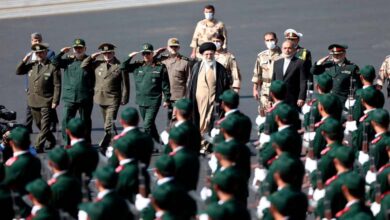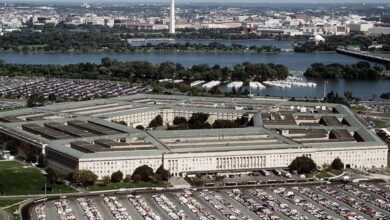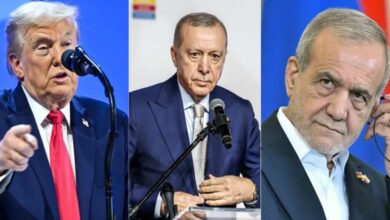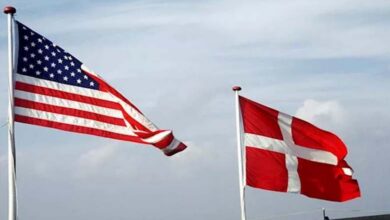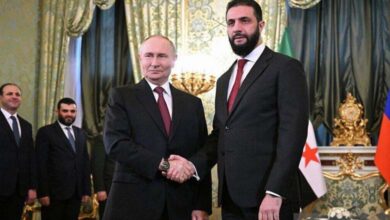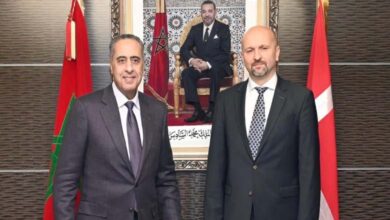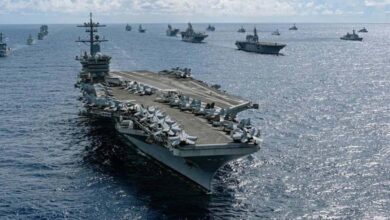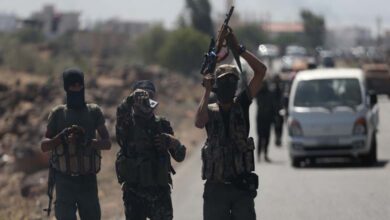The boycott of Western products sweeps across the Arab world in solidarity with Gaza
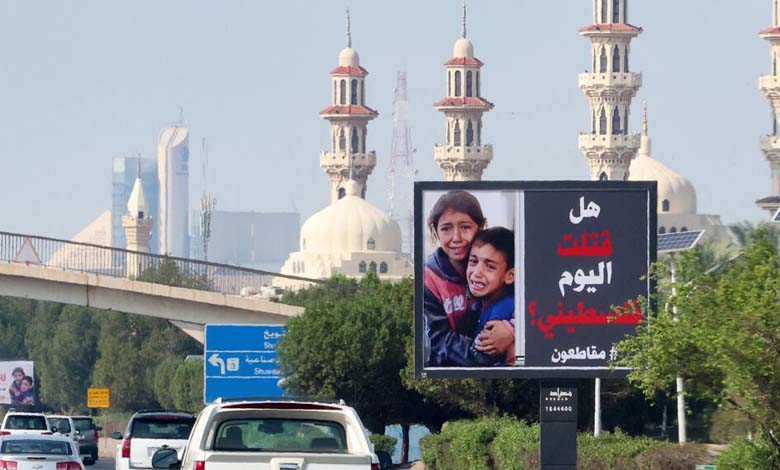
Posts circulating on social media include brands accused of supporting Israel with the slogan ‘Don’t contribute to their bullet costs.’ The Western products boycott campaign gained significant momentum in the Arab world amid Israel’s war on Gaza, and calls to refrain from buying any European goods on social media receive wide support. Many activists consider it the best punishment for countries supporting and sympathizing with the Israeli state.
In a store in Bahrain, 14-year-old Jana Abdullah carries a tablet while shopping with her mother to check a list of Western products’ names with the aim of not buying them, while Israel continues its war against Hamas in Gaza.
Jana and her 10-year-old brother Ali, who used to have fast food from McDonald‘s every day before the war started, have joined many in the Middle East in a campaign to boycott major international products and companies they consider to support Israel.
Jana says, ‘We started boycotting all products that support Israel in solidarity with the Palestinians. We don’t want our money to contribute to more battles.’ She is looking for local products instead of those imported and linked to Israel’s allies, especially the U.S.
Calls for boycotting Western products, launched by tech-savvy youth, spread on dedicated websites and smartphone apps that specify the products they demand not to purchase.
An add-on for the Google Chrome browser called “Palestine Pact” works to hide products featured in online ads if they are on the boycott list.
Traditional methods are also used. Along a four-lane highway in Kuwait, giant billboards display images of children covered in blood. They are accompanied by a striking slogan that says, ‘Did you kill a Palestinian today?’ with the hashtag #Boycott, targeting consumers who have not yet joined the boycott campaign.
Mushari Al-Ibrahim, a member of the “Boycott Zionist Entity Movement” in Kuwait, believes that Western reactions following the aggression against Gaza have boosted the boycott’s popularity in Kuwait and created a mental image among Kuwaitis that Western slogans and their talk of human rights do not include them. He added, ‘The boycott is clear, and the reactions of brand agents within the country confirm the campaign’s impact.’
A series of McDonald‘s restaurants found themselves a primary target after its branch in Israel announced last month that it had provided thousands of free meals to the Israeli army, which angered the Arab public.
McDonald‘s branches in several Arab countries issued a statement from the “Global McDonald‘s” group, confirming that it had no connection to the individual actions of the agent in Israel and that it ‘does not fund or support in any way governments or parties involved in this conflict.’
McDonald‘s Kuwait, a separate agency, announced a donation of ‘50,000 Kuwaiti dinars (over 160,000 dollars) to our people in Gaza,’ confirming that its store ‘stands with Palestine.’ McDonald’s Qatar also contributed one million Qatari riyals (around 275,000 dollars) ‘to support the relief efforts for the people of Gaza.’
In Qatar, some Western companies were forced to close after their managements posted pro-Israel content on social networks.
American cafe “Pura Vida Miami” and French pastry shop “Maitre Choux” closed their doors in Doha last month.
In Egypt, the Egyptian soft drink company “Spira Spats,” which had very little popularity, gained significant traction as an alternative to the famous brands Pepsi and Coca-Cola.
The company, founded in 1920, published a statement on its Facebook page stating that it had received over 15,000 resumes when it announced its need for new employees to expand its business after the high demand for its products. However, the Egyptian Federation of Chambers of Commerce warned that the boycott could have a significant impact on the Egyptian economy.
The Federation stated in a press release that ‘such campaigns will have no impact on the parent companies because local branches operate under a commercial franchise system, and therefore, the effect will only be on Egyptian investors and workers.’
Sarcastic jokes and comments spread in this regard, as one user commented on a picture of a local juice product, ‘This boycott made us aware of products we didn’t want to know about.’
In Jordan, social media posts point to the brands accused of supporting Israel with the slogan ‘Don’t contribute to their bullet costs.’
In a store in the capital, Amman, Abu Abdullah scrutinizes a bottle of milk and says to his 4-year-old son Abdullah, ‘This is good; it’s made in Tunisia,’ adding, ‘This is the least we can do for our brothers in Gaza.’ He emphasizes that ‘we should boycott.'”


